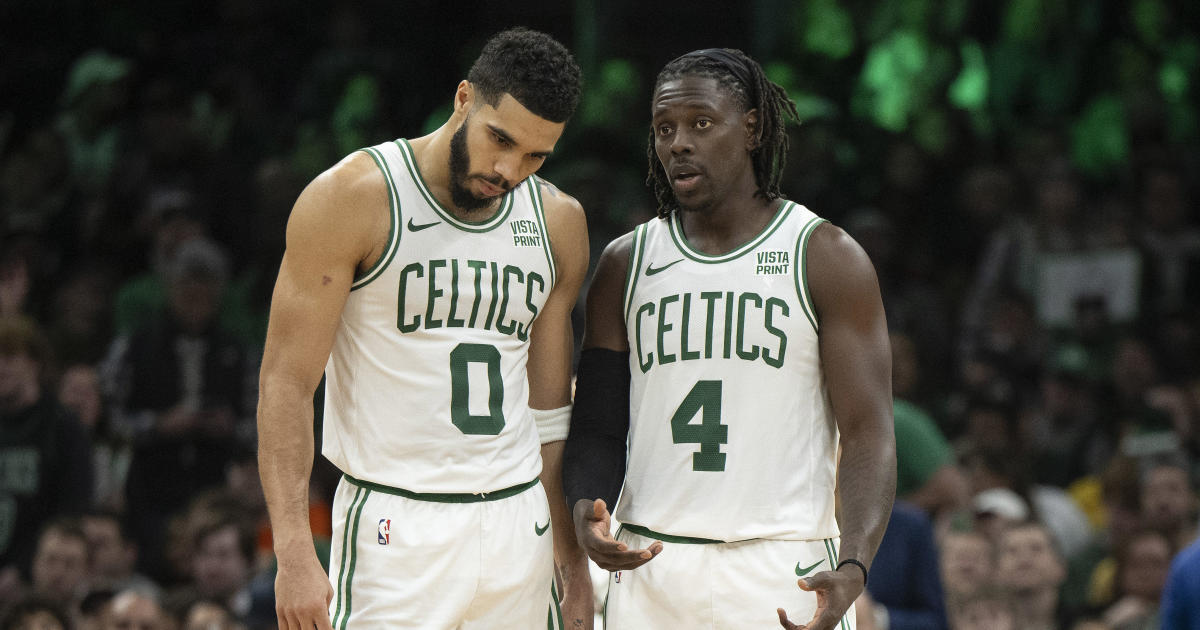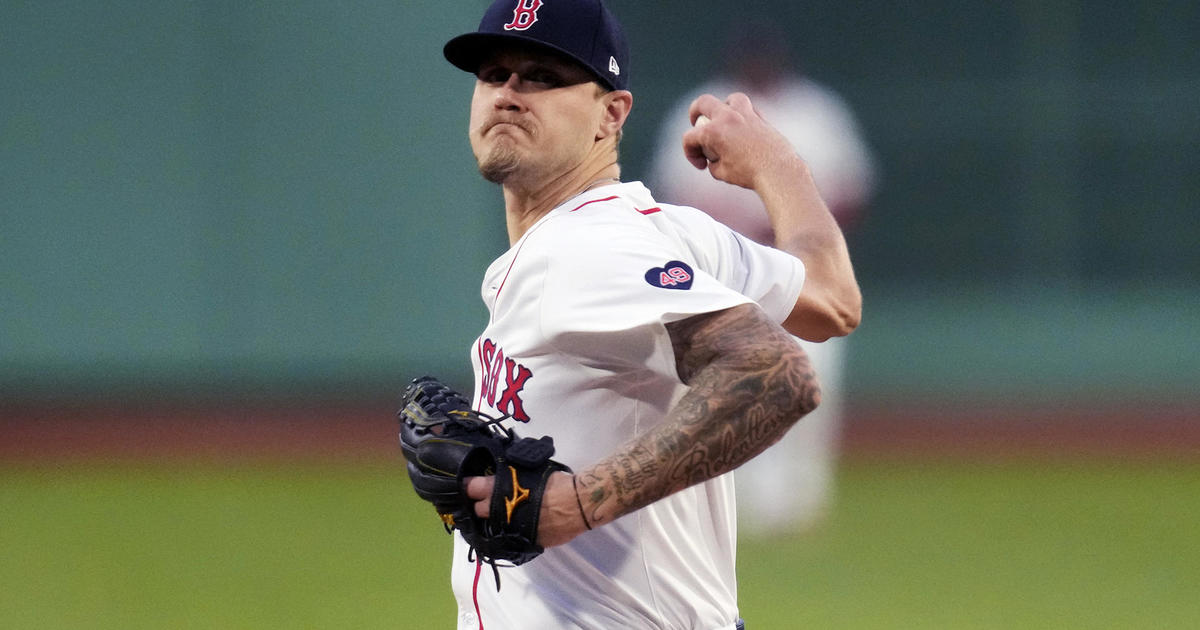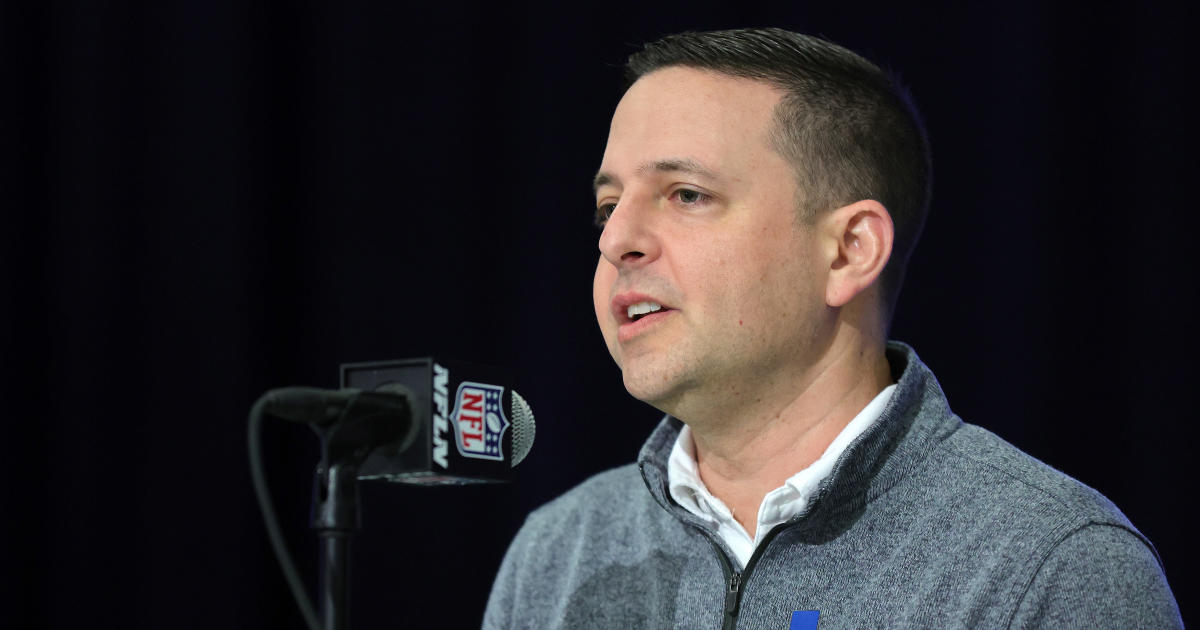Hurley: Overreliance On Tom Brady Might Set Up Patriots For Premature Postseason Ending
By Michael Hurley, CBS Boston
BOSTON (CBS) -- It wasn't all that long ago that everything was going swimmingly for Tom Brady. The defending Super Bowl MVP had defeated the commissioner in federal court, and on the field he was enjoying arguably the best season of his Hall of Fame career. With a bevy of highly talented receiving options at his disposal, he was racking up touchdowns, accumulating accolades, and most importantly, he was winning games. All of them.
The Patriots were scoring 34 points per game. Brady had thrown 24 touchdowns and just three interceptions. He was averaging 338 yards per game (seasonal avg), which had him on pace for a career high. A trip to his hometown for Super Bowl 50 seemed inevitable.
But then, of course, the well-oiled machine that was the Patriots offense was dented when Dion Lewis tore his knee. The side-view mirror was ripped off when Julian Edelman broke his foot. And the front left tire popped when Rob Gronkowski sprained his knee.
All that remained was the driver, who since has nevertheless been asked to maintain that 100 mph speed despite the smoke billowing out from under the hood.
It's no surprise that it's not exactly working.
On Sunday, Brady threw 56 passes in a losing effort. It was the third time this season that he's thrown 54 or more passes in a game. Prior to this season, he had only thrown 54 or more passes in a single game nine times over the previous 13 years as a starting quarterback. This season, he's already finished games with the second-most, fourth-most and ninth-most pass attempts of his career.
Through 13 weeks, Brady has thrown more passes (507) than any other quarterback in the NFL, and his average of 42.3 per game will be a career high if he maintains it through the final four weeks of the season. (He threw 39.8 passes per game in 2012, his current career high.)
In fact, if he finishes the year averaging 42 passes per game, it'll be the sixth-most passes per game ever thrown in any season by any quarterback in history. The quarterbacks who threw more than 42 passes per game in history were 24, 22, 34, 23, and 26 years old. Brady is, of course, 38.
At his current pace, Brady is set to throw 676 passes, which would be fourth-most all time, fewer only than Matthew Stafford's 24-year-old season, Drew Bledsoe's 22-year-old season, and Peyton Manning's 34-year-old season.
Despite this, and despite the physical punishment that's been inflicted on him, Brady says he's feeling just fine.
"I feel good," Brady said Wednesday. "Fresh as lettuce."
That may be so, but how long will it be before the green begins to brown?
Unlike the games against the Bills and Jets earlier in the season, Brady was called upon to throw 50-plus passes against the Eagles seemingly not by choice but out of necessity. And that may be a bit of a problem.
Sure, football isn't baseball, and looking at the exact number of passes thrown as an apples-to-apples comparison to baseball's pitch count doesn't exactly work. Certainly, Brady's elbow and shoulder likely aren't any more or less sore based on a variance of 15-20 throws on a given Sunday.
But the pass attempt number is more an indication of how much the entire Patriots attack relies on the quarterback. And with receivers either suffering injuries or dropping passes, and with the offensive line getting shakier as the season wears on, it is a troubling trend.
The Patriots have just 277 rushing attempts, fifth-fewest in the NFL, occupying space near the bottom of that list with teams (Miami, Detroit, Cleveland, Jacksonville, Oakland, San Diego, New Orleans) which often find themselves trailing in games and therefore in position to throw more than run. All seven of those teams own a negative point differential, collectively outscored by an average of 72 points. With a plus-128 point differential, the Patriots should not be putting themselves in that class.
On Sunday, the Patriots ran the ball with a reasonable level of effectiveness, averaging 4.1 yards per carry, but opted to run the ball just 25 times. In the second half, they called just six designed running plays, and two of those were quarterback sneaks. Including scrambles, Brady accounted for 25 percent of the team's rushing attempts on the day, in addition to the 54 passes thrown, four sacks taken, and one route run on his 36-yard reception.
That's a lot to ask out of a 29-year-old quarterback in early December. It might be too much to ask of a 38-year-old quarterback in early December.
Obviously, Brady is as in tune with his body as any athlete approaching 40 has ever been. He is in phenomenal shape and has not shown one physical sign of decline. If anything, he's improved his mobility, he's overcome his past issue of succumbing to phantom pressure, and he's still capable of delivering bullets down the field.
But he is a human. He's been sacked 11 times and he's been hit 37 times in the past four weeks. With four games left to play, he's been sacked 29 times this season; he was sacked 21 times through all of last season.
Every single time he drops back to pass in an offense with no desire to establish a running game and an inability to properly protect the quarterback is another play that puts Brady at risk of absorbing yet another hit. And each hit lessens the likelihood that Brady will be at or near 100 percent in January.
To be clear, Brady did not look fatigued on Sunday -- at least, not physically. But mentally, the onus of carrying the entire offense looked like it might have started to take its toll. For several weeks now, the quarterback has worked in the deep ball/prayer to Brandon LaFell, a low-percentage play that thus far has brought more harm than good for the Patriots' offense. In the loss to the Eagles, a deep shot to LaFell was picked off in the end zone, killing the momentum gained from Brady's reception and greatly hurting the Patriots' chances of completing a comeback.
Brady is smarter than that, yet given the circumstances, that pass has become a regular occurrence for him. It is not part of a winning formula, yet with the offense in its current state, Brady's other options are severely limited.
Add it all up, and a season once on a crash course for Super Bowl 50 now runs the risk of being cut short by a presumed inferior team.
Brady's thrown 50 or more passes in a single game 19 times in his regular-season career. Three came last year, a season that obviously ended with a Super Bowl victory, but none of those 50-plus days came after Thanksgiving. In the final month of the season, Brady averaged just 32.5 passes per game, including only 16 in Week 17, thereby allowing him a brief respite before ramping up his workload in the postseason.
It's a luxury the Patriots had last year, having secured their playoff position early. And it's one they may not have this year, thanks to costly losses like the one on Sunday.
Considering he's on pace to throw a career-high 676 passes, or 42.3 passes per game, it's worth noting how the season ended for his other years with heavy workloads.
2012: 39.8 passes per game; lost at home to Ravens in AFC Championship Game
2013: 39.3 passes per game; lost on the road to Broncos in AFC Championship Game
2011: 38.2 passes per game; lost to Giants in the Super Bowl
2002: 37.6 passes per game; did not make playoffs
2014: 36.4 passes per game; won the Super Bowl
2007: 36.1 passes per game; lost to Giants in the Super Bowl
2009: 35.3 passes per game; lost at home to Ravens in wild-card round
2005: 33.1 passes per game; lost on the road to Broncos in divisional round
It's also worth noting that in the four years the Patriots won the Super Bowl, Brady averaged 28.8 (2001), 29.6 (2004), 32.9 (2003) and 36.4 (2014) passes per game. In fairness, the NFL has undeniably developed into more of a passing league as Brady's career progressed, but the point still stands: Asking Brady to throw passes at a historical rate, and at age 38 no less, does not appear to be a recipe for success.
While it would be foolish to state with any degree of certainty that Brady and the offense will not succeed in January, it's fair to question whether this current demand may eventually take its physical toll on the quarterback and whether we'll all be stuck trying to figure out just how the Patriots lost a home playoff game to a lesser team.
Much of the hope in this region regarding a championship repeat revolves around the health and return of Edelman and Gronkowski in January. But the Patriots might want to also start doing more to make sure the quarterback makes it that far.
Read more from Michael Hurley by clicking here. You can email him or find him on Twitter @michaelFhurley.



